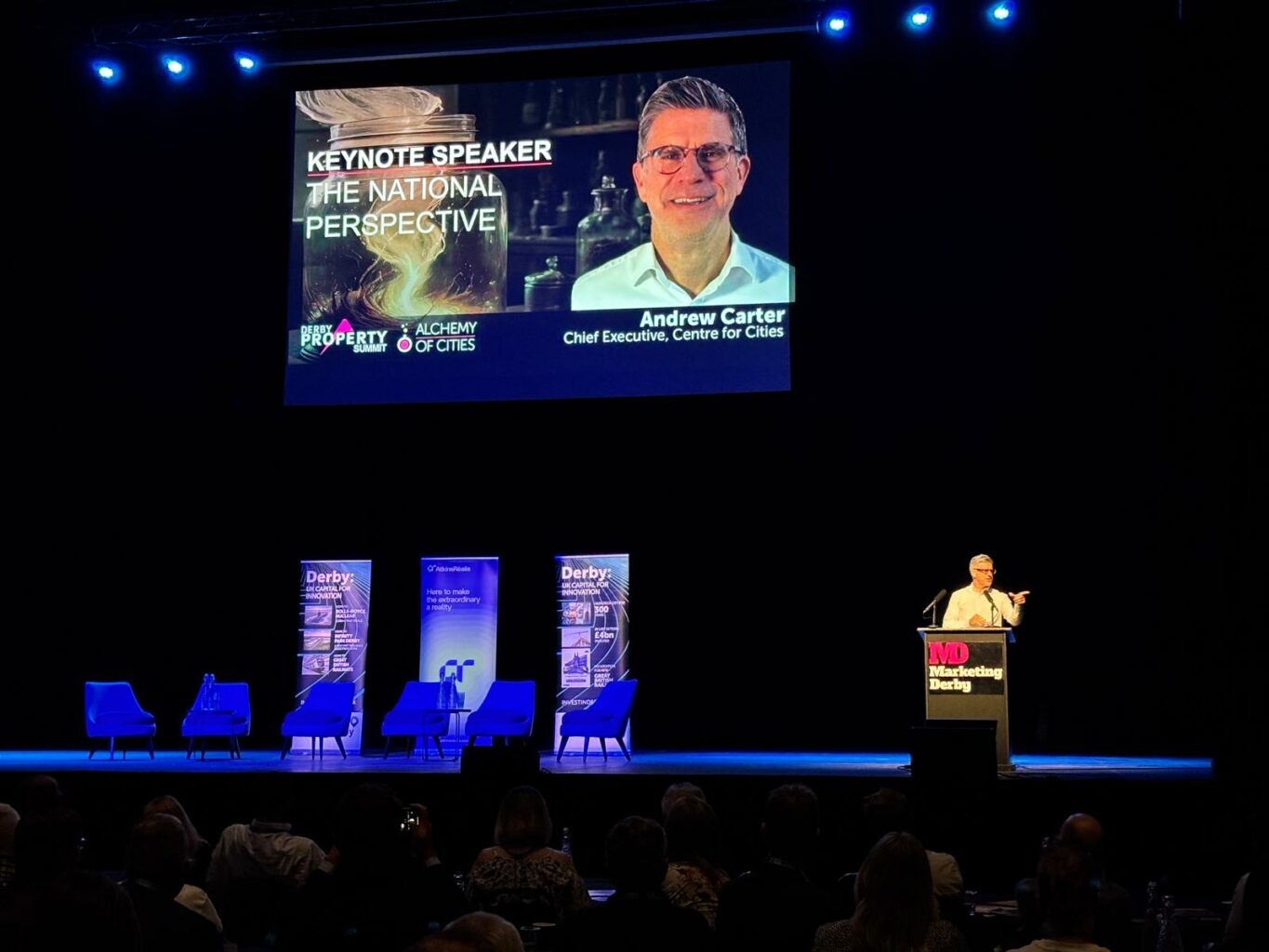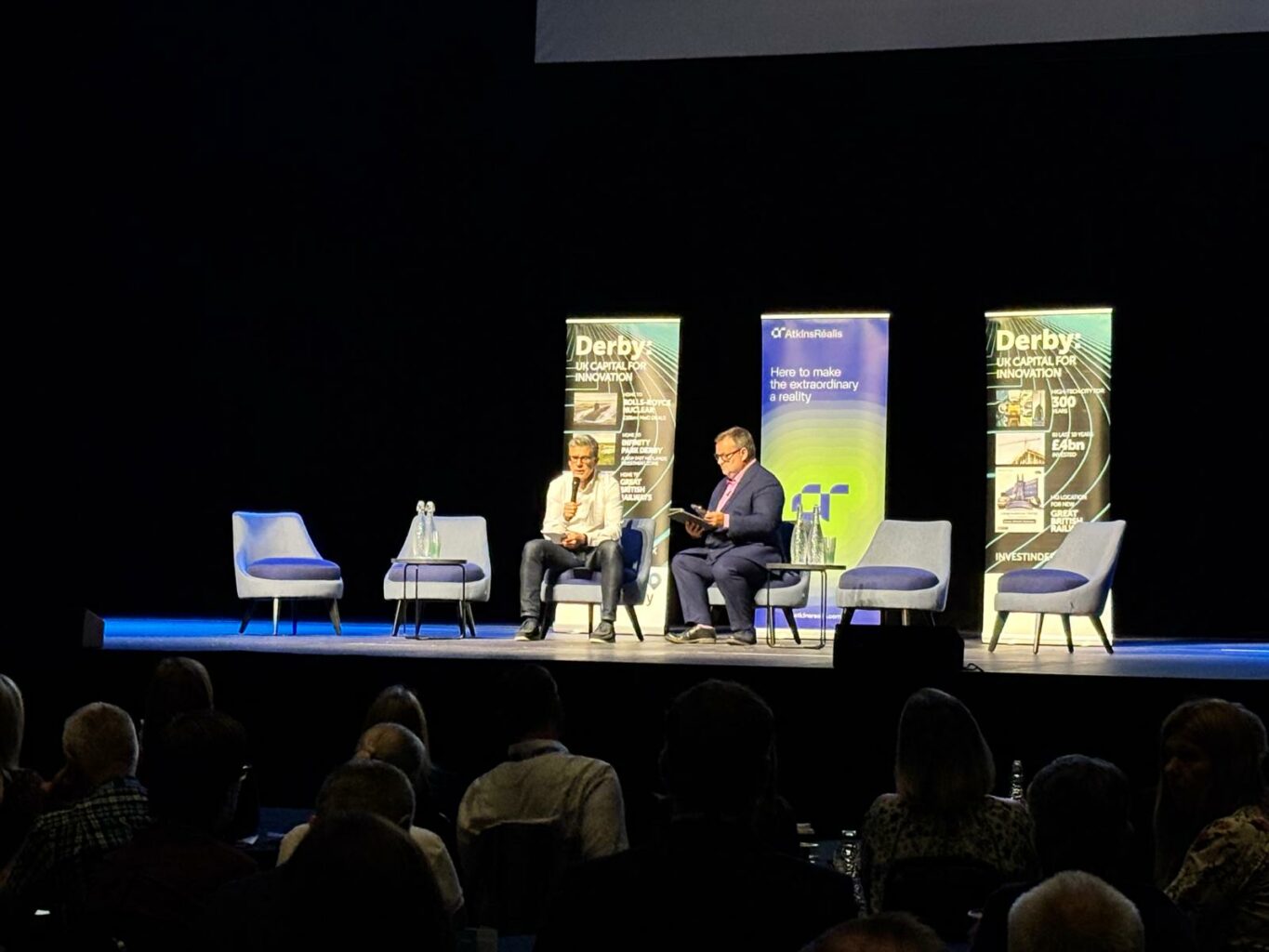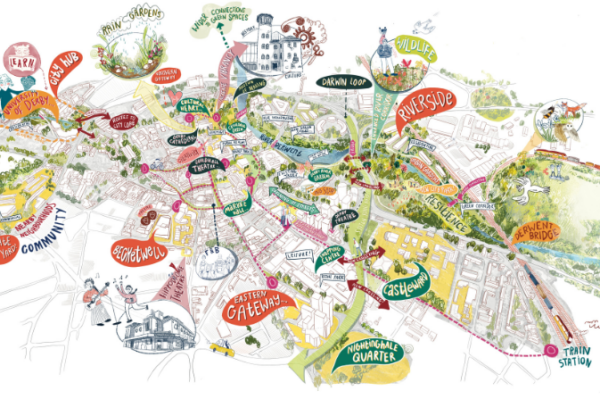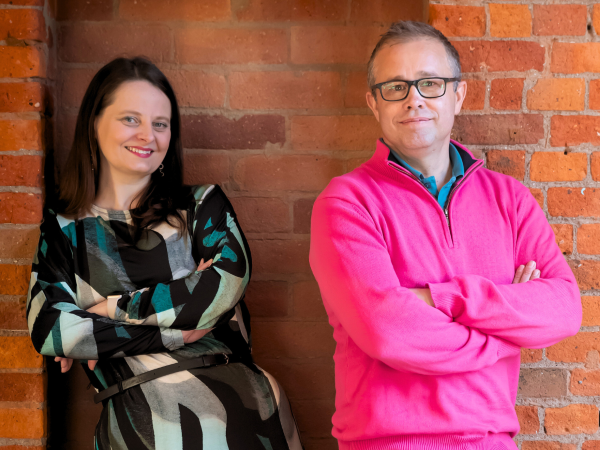Investment News | 3 July 2025
‘Successful cities don’t just happen by magic’

Successful cities don’t just happen by magic – that was the message shared by keynote speaker Andrew Carter at this year’s Derby Property Summit.
The theme of this year’s summit was ‘The Alchemy of Cities’ – and before yesterday’s event, Andrew, who is chief executive of urban policy research unit Centre for Cities, confessed to looking up the definition of the word ‘alchemy’.

“The dictionary defined it as ‘a seemingly magical process of transformation, creation or combination’,” said Andrew, who was there to talk about the key elements that make up a successful city.
“There is nothing magical when it comes to making our cities successful. We know, not fully, but we know what makes cities successful.
“The challenge for us is whether we are prepared to do what is necessary in order to deliver that success.
“The cities that are successful – don’t just magically do so. They make decisions, they make choices – and they do so time and again. They don’t rely on magic.”
During his speech, Andrew cited the work of two of his favourite economists – Jane Jacobs and Ed Glaeser – who have given insights into what drives long-term success in cities.
Andrew said: “Form matters. The first thing is population density and diversity – it really matters how many people, how many different backgrounds you have in your city. You have to have density in your city in order to create dynamism and success. It’s about creating opportunities for them to frequently interact.
“The second point is mixed uses, which are much more accepted now. Combining the residential, commercial and cultural in the same area, widening the appeal.
“The third thing is that as well as creating new buildings, we need to reuse our old buildings. As Jane Jacobs wrote, new ideas need old buildings. They can not only be great spaces, but they are also useful from a local identity point of view.
“Finally, we need ‘short blocks’ and walkable streets. Enable people to get around the city and interact and connect with people. This also helps create a sense of safety – having people on the streets matters.”

Andrew then went on to talk about what we need and want from our cities.
“In order to be successful, our cities need to be hubs of innovation and entrepreneurialism,” he said.
“In terms of the impact on the everyday economy, we know from our evidence that it does far better in places that have strong innovation and entrepreneurialism. We also know that it has a positive impact on high streets.
“The challenge now is to encourage more of our places to be part of this future-based economy.”
Andrew believes that successful cities ensure people have access to the opportunities on offer.
“Growth is necessary – but not enough, “ he said. “People need to access the opportunities that come from that growth. Education and skills are fundamental – in this respect institutions like Derby College Group are probably the most important in the city for addressing these issues.”
Andrew also spoke about the downsides of success – and need for urban areas to react to factors such as housing affordability, congestion, inequality, pollution and displacement.
He said: “Success drives up demand. If supply doesn’t respond prices go up, and access and opportunity go down. You have to manage those pressures, otherwise people will leave.”
Finally, Andrew said that successful cities require forward-looking leadership.
“Urban success doesn’t happen by accident,” he said. “It’s actively shaped, day by day, week by week, year by year and decade by decade.
“It’s strategic, it’s adaptive, it forward-looking and it’s grounded in long-term planning.
“But for leadership to be impactful then it also needs to have the powers and resources and the capabilities to turn that vision into action.
“Which is why ongoing devolution is incredibly important. The powers and resources need to be placed into the hands of places like Derby so they can make the decisions to push forward their economies.”


